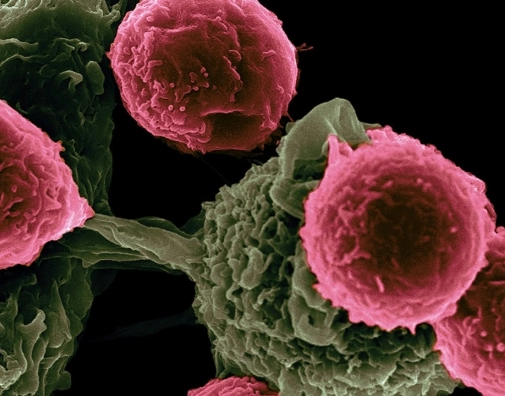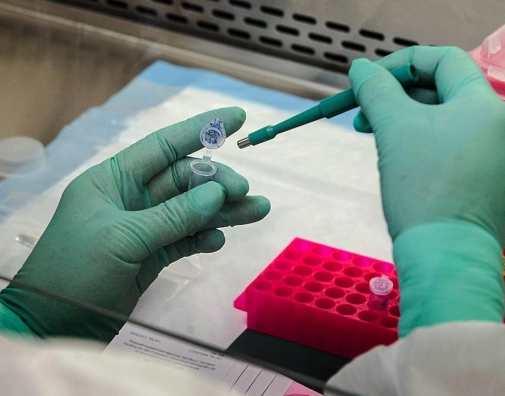
The Power of DNA on Nutrition and Fitness

In our quest for improved nutrition and enhanced fitness, we often focus on external factors like diets, exercise routines, and supplements. These factors are essential, but we usually overlook a vital component that shapes our health - our DNA.
DNA, or deoxyribonucleic acid, is a self-replicating molecule that encodes an individual's unique genetic information. DNA, sometimes known as the "blueprint of life," contains the instructions to synthesize the proteins that make up the body's cells, tissues, and organs.
In this blog, you'll learn how your DNA can improve your well-being and athletic performance, making it a game changer in the world of nutrition and fitness.
DNA and Nutrition
Have you ever wondered why two people following the same diet can have different health results? The answer may lie in their genetic makeup. No two individuals share the same DNA. It means that how our bodies respond to different food components might vary depending on our genetic makeup.
Our DNA not only determines our external appearance; it also influences how our bodies function internally. DNA encodes proteins that affect how we ingest, absorb, metabolize, and eliminate food and nutrients. Recent advancements in genetic science have shed light on the profound impact of our genetic makeup on our nutrition and fitness.
What is Nutrigenomics
Nutritional genomics, also known as nutrigenomics, is a field of research that studies the relationship between an individual's DNA, dietary choices, and overall health. Researchers in this discipline study the dynamic interaction between the foods we eat, the nutrients they provide, and the genetic instructions encoded within our DNA.
For example, a person with a genetic predisposition known as a "thrifty genetic trait" may gain weight quickly when eating a high-fat diet, significantly increasing their risk of Type 2 diabetes.
Consider women with insufficient folic acid (a B vitamin) who have the 677TT MTHFR gene mutation. This combination may increase the risk of spina bifida in their newborns. It indicates how genetic factors can impact the results of nutrition.
Nutrigenomics reveal the following aspects of DNA tapestry:
- Nutrient Absorption: Genetic variations can affect how well our bodies absorb essential nutrients such as vitamins, minerals, and antioxidants. Some people may have genetic predispositions that require a higher or lower intake of specific nutrients.
- Metabolism: DNA determines how quickly we burn calories and digest fats, proteins, and carbs, influencing our susceptibility to weight gain and obesity.
- Food Sensitivities: Some people are predisposed to food intolerances or allergies due to genetic factors, such as lactose intolerance or gluten sensitivity.
DNA and Fitness
Have you ever noticed that walking long distances may be a challenge for you, while an old friend can easily walk for miles? It's possible that walking may come easy to them, while you may need to exert more effort for the same activity. This could be related to genetic factors that predispose them to walk longer distances.
DNA plays an important role in shaping your fitness levels in addition to determining various physical traits. Your DNA determines your body size and shape, as well as your muscular strength and overall fitness. Aerobic fitness and athletic talents can also be inherited. Athletes generally inherit genes that contribute to their athleticism. Over 20 genetic polymorphisms may affect an athlete's status as an elite performer, while nearly 200 genetic variations have been found to affect athletic performance traits.
Therefore, it's clear that when it comes to fitness, it's not just about diet and exercise. A one-size-fits-all plan won't work for everyone; each individual requires a customized regimen that suits their body type and genetic makeup.
Here's how DNA affects fitness:
- Muscle Composition: Genetic factors influence the ratio of fast-twitch to slow-twitch muscle fibers, affecting an individual's predisposition for activities like strength training or endurance running.
- Aerobic Capacity: DNA determines how efficiently your body consumes oxygen during exercise. This can have an impact on endurance and stamina.
- Injury Risk: Some genes may be associated with an increased risk of exercise-related injuries. Understanding these genetic indicators can help individuals take precautions and select appropriate exercises.
- Recovery Time: DNA determines how quickly your body recovers after physical activity. This information can help you determine your workout frequency and intensity.
What is DNA Testing
Over the last few decades, significant scientific and technological advancements have resulted in the emergence of DNA testing. Initially, it was used to solve criminal cases, determine paternity, and diagnose prenatal genetic disorders such as Down syndrome. However, DNA testing has broadened its scope today, evolving into a versatile tool.
Today, it enjoys widespread acceptance among healthcare professionals and the general public due to its great potential to improve overall health and well-being.
DNA Testing for Nutrition
Nutrigenomics uses DNA testing to study the complex relationship between nutrition, health, and DNA.
In nutrition, DNA testing provides information about the following factors:
- Vitamin and mineral deficiencies, including iron, calcium, vitamin A, vitamin B, and others.
- Body Mass Index (BMI)
- Bone mineral density (BMD)
- The study of how macronutrients, including proteins, carbohydrates, fats, and fibers, affect your weight.
- Salt intake and sensitivity to changes in blood pressure.
By using this information, you can make informed choices about your dietary plan to achieve improved health.
DNA Testing for Fitness
DNA testing is gaining popularity as a beneficial tool for individuals who want to know how their genetic makeup influences their workout capabilities and performance.
DNA testing can reveal how your body responds to various types of exercise. It can reveal whether you are predisposed to excel in endurance activities like long-distance running or strength-based activities like weightlifting. It also gives dietary recommendations based on your genetic makeup. It can inform you about the best macronutrient ratios, micronutrient needs, and hydration requirements for your fitness goals.
Moreover, coaches and trainers can use DNA testing reports to develop personalized training programs for athletes. These plans consider the genetic strengths and weaknesses of an individual, increasing performance while reducing the risk of overexertion.
The Bottom Line
The power of DNA on our nutrition and fitness journeys is undeniable. In a world where one-size-fits-all approaches often fall short, DNA testing provides a glimpse into the future of health and wellness. By understanding the significance of our DNA in nutrition and fitness, we can tailor our lifestyles to align with our genetic potential. Genetic information helps us make informed decisions about our diets, exercise routines, and overall health, leading to a healthier, happier life.
Nutrition test

This test analyzes genes related to metabolism and nutrient absorption, and provides personalized information on how your body reacts to different types of food.
It was time to take control of my health.
Adnà's Input
To find out more about the influence of genetics and your nutritional and fitness status, we invite you to visit the Adnà website and discover the latest genetic information and solutions.
By exploring the power of DNA, you can chart your course towards personalized nutrition and fitness, designed specifically for you.
Other Journal: News
VIEW MORE


